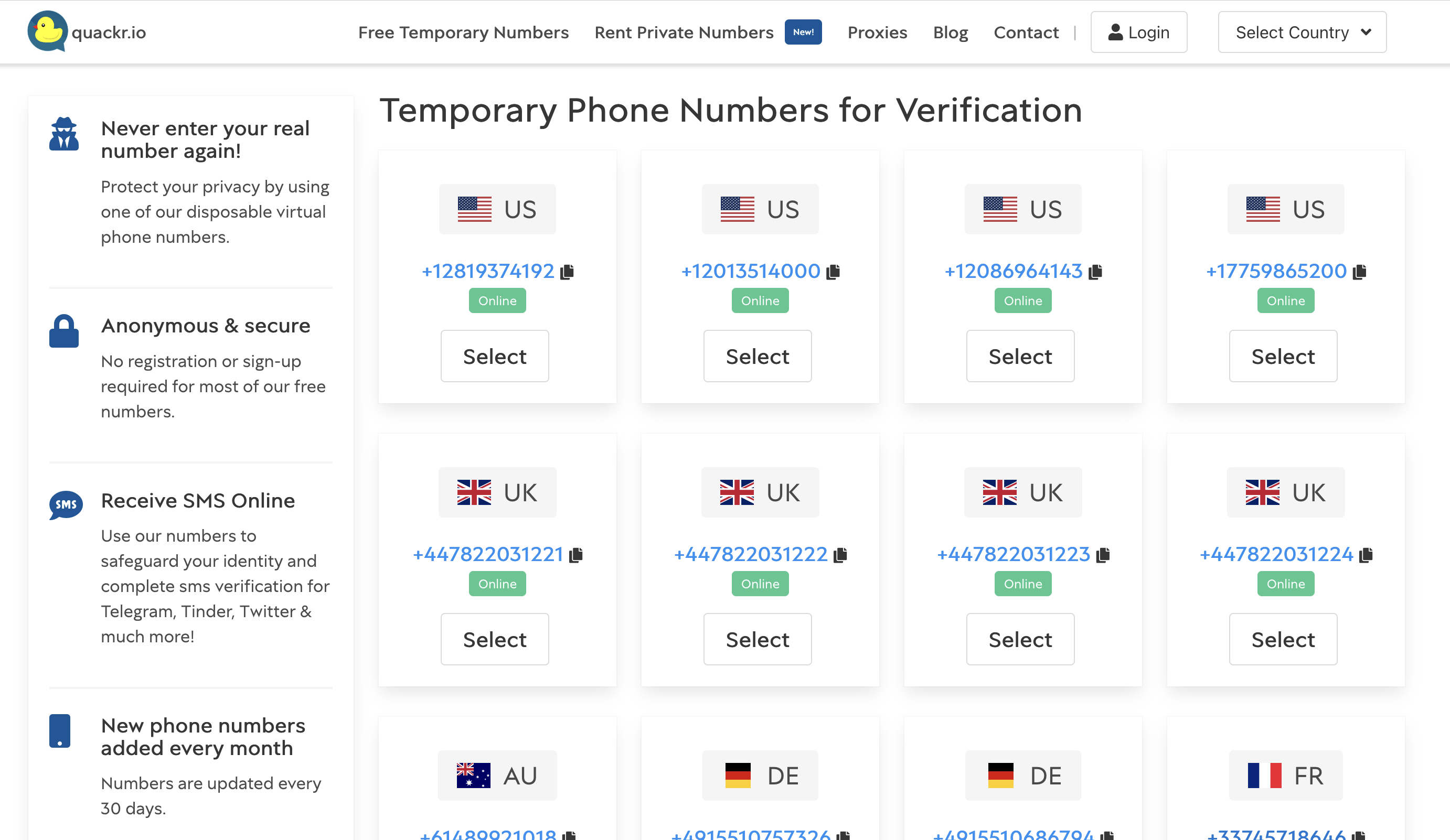Fraudsters increasingly rely on virtual phone numbers to bypass verification checks. While these numbers may seem harmless, they open the door to fake accounts, SMS fraud, and inflated costs for businesses.
In this guide, we'll explore what temporary numbers are, how they work, why people use them, and—most importantly—how you can detect and block virtual phone numbers to protect your business.
Table of Contents
- What Are Disposable or Virtual Phone Numbers?
- How Do Temporary Phone Numbers Work?
- Why Do People Use Temporary Phone Numbers?
- The Growing Disposable Number Market
- Why Your Business Can't Ignore the Risk
- How to Detect and Block Disposable Phone Numbers
- Key Takeaways for Businesses
- FAQs About Disposable Phone Numbers
What Are Disposable or Virtual Phone Numbers?
Disposable phone numbers—also known as temporary or virtual phone numbers—are short-term numbers generated through online services or apps. They aren't tied to a physical SIM card. Instead, they're created via VoIP technology (Voice over Internet Protocol), allowing calls and SMS to happen over the internet.
Users can rent these numbers for a few minutes, hours, or even weeks. Once expired, the numbers are recycled and reassigned to someone else.
👉 Example: A user generating a temporary number to receive a one-time password (OTP) for creating an account, without ever revealing their real number.
How Do Temporary Phone Numbers Work?
- VoIP technology: Enables numbers without SIM cards or physical carriers.
- Massive inventories: Providers maintain pools of local and international numbers.
- Rental model: Numbers are rented for short durations, often free or at very low cost.
- Recycling: Once a rental ends, the number is reassigned.
This makes disposable numbers attractive for users—but dangerous for platforms relying on SMS verification.

Why Do People Use Temporary Phone Numbers?
Not all usage is fraudulent. People use temporary numbers for different reasons:
- Account verification without risk: To avoid sharing personal numbers on new apps or websites.
- Privacy protection: For dating apps, short-term services, or anonymous interactions.
- Developer testing: Engineers may use disposable numbers to test apps or SMS features safely.
⚠️ However, fraudsters exploit these same features to abuse free trials, flood systems with fake sign-ups, and drive up SMS costs.
The Growing Disposable Number Market
Studies show explosive growth in the use of virtual numbers:
- A 2023 study analyzing 17,000+ temporary numbers found millions of verification messages sent worldwide.
- Global platforms—including Google, Facebook, banks, and government services—unknowingly send OTPs to virtual numbers.
- Fraud is widespread, with activity detected in 31+ languages.
This shows that no industry is safe, from social apps and e-commerce to fintech and gaming.
Why Your Business Can't Ignore the Risk
Temporary phone numbers can severely impact your platform:
- Free trial abuse: Fake accounts drain resources (e.g., ChatGPT clones created with virtual numbers).
- SMS fraud (SMS pumping/toll fraud): Attackers inflate SMS costs by forcing systems to send verification texts to paid destinations.
- Reputation damage: Fake accounts post reviews, scam users, or commit fraud on your platform.
- Financial risk: Increased chargebacks, spam, and customer churn.
If left unchecked, virtual numbers can erode customer trust and profitability.
How to Detect and Block Disposable Phone Numbers
There are two main approaches:
1. Build Your Own Disposable Number Database
You can scrape public lists of temporary numbers and maintain your own internal database. When a user registers, cross-check their number against your list.
Challenges:
- Constant updates required
- Smaller providers often missed
- High maintenance costs
- Risk of blocking real users
2. Use a Professional Phone Number Validation Service (Recommended)
Relying on manual lists of disposable numbers is inefficient and incomplete. A smarter approach is to use a dedicated phone number validation service that continuously tracks and blocks temporary numbers in real time.
NumCheckr is designed for exactly this purpose. We maintain one of the most extensive and accurate databases of disposable and virtual phone numbers worldwide. Our technology combines automated web crawling, advanced data analysis, and machine learning to keep the database constantly up to date.
By integrating NumCheckr's API into your system, you can instantly filter out fraudulent numbers during sign-up, login, or verification—before they ever impact your platform.
Benefits:
- Constantly updated data with the largest database in the world
- Minimal setup, easy integration
- Real-time fraud prevention
- Specialized expertise in virtual number detection
Key Takeaways for Businesses
- Virtual numbers are cheap, accessible, and heavily abused by fraudsters.
- Detecting them is essential to protect revenue, cut SMS costs, and stop fake accounts.
- The most efficient way is to use a specialized service like NumCheckr rather than trying to build and maintain your own list.
- NumCheckr's real-time API provides the most comprehensive protection against virtual phone numbers.
FAQs About Virtual Phone Numbers
❓ What is a virtual phone number?
A temporary phone number created via VoIP services, often used for short-term SMS verification or anonymous communication.
❓ Why are virtual phone numbers dangerous?
They allow fraudsters to create fake accounts, abuse free trials, commit SMS fraud, and inflate costs.
❓ Can legitimate users also use virtual numbers?
Yes—for privacy or testing—but the risks for businesses far outweigh the benefits.
❓ How can I block virtual phone numbers?
The best solution is integrating NumCheckr's phone number validation API that identifies virtual numbers in real time with the world's most comprehensive database.
